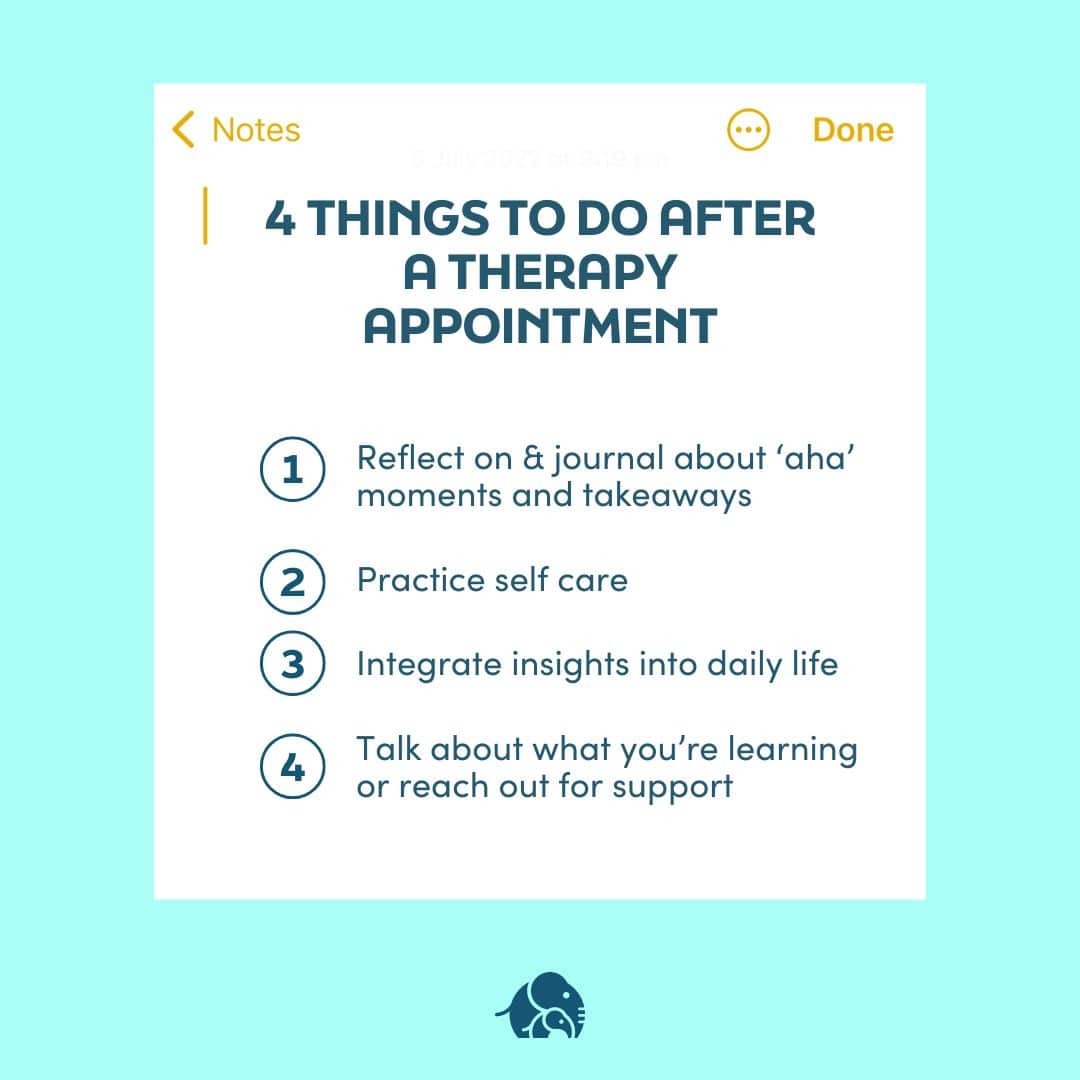Therapy can be a life-altering journey, but remember, the magic doesn’t stop when you step out of your therapist’s office. It’s the ‘after’ that can truly amplify the benefits of your therapy sessions and bolster your mental health. Here are four crucial steps to take post-therapy to reduce the ‘therapy hangover’ and get the most out of your therapy sessions.
What is a ‘Therapy Hangover?’
Ever felt a little zapped after an intense therapy session? That’s what some people might call a “therapy hangover”. It’s when you’ve dug deep, unearthed emotions and tackled some tough stuff. It can leave you feeling a bit drained, a bit raw. Sometimes it’s a part of the healing journey. You’re not alone, and it’s okay to take some time to regroup. Follow these steps for processing through the ‘hangover,’ taking care of yourself, and reaching out for support if you need it.
1. Capture Your Session Into Words
After your session, take a moment to digest the conversation. This could mean noting down the highlights, the emotions that bubbled up, or the insights that struck a chord. Consider how these reflections echo in your daily life or ongoing struggles. Keeping a journal can be a game-changer—it helps you crystallize your thoughts and trace your emotional journey.
Journaling Ideas for After Therapy
Here are ten journal prompts to encourage reflection after a therapy session:
1. What emotions did I experience during my session, and how did they manifest in my body?
2. What were my “aha” moments and why do those matter?
3. How did I respond to any challenges discussed in therapy, and what does that reveal about my coping strategies?
4. What are the actionable steps I’ve identified and how can I put them into motion this week?
5. Did anything during the session trigger a strong reaction? What was it, and what might it indicate about my feelings or beliefs?
6. How do I feel about the progress I’ve made so far in therapy, and what areas still feel challenging?
7. What support systems can I lean on to help me navigate the feelings or changes that came up today?
8. How can I practice self-compassion based on what I learned in today’s session?
9. What past experiences did I reflect on during our discussion, and how do they influence my current behavior or mindset?
10. In what ways can I celebrate or acknowledge the effort I’m putting into my therapeutic journey?
2. Practice Self-Care
Therapy can stir up a whirlwind of emotions, so it’s crucial to indulge in self-care. Engage in activities that soothe you, whether it’s a peaceful walk, a meditation session, or immersing yourself in a hobby you love. Making self-care a priority ensures you process your emotions healthily and shields you from any discomfort that might follow.
Here are Five Self-Care Ideas for After a Therapy Session:
1. Take a Nature Walk: Spend time outdoors to clear your mind and connect with nature.
2. Create Art: Engage in a creative activity like painting, drawing, or crafting to express your emotions.
3. Practice Mindfulness: Try meditation or deep-breathing exercises to ground yourself and process feelings.
4. Cook a Comfort Meal: Prepare a nourishing meal that you love, focusing on the process as a form of self-care. I personally love to listen to music while I cooko or create.
5. Relax with a Book or Show: Enjoy a good book or watch a favorite show to distract and unwind after your session.
3. Integrate Insights Into Daily Life
Consider how the insights gained during your session can be applied in your everyday life. This might involve setting small, actionable goals based on what you discussed. For instance, if you talked about boundaries, think about ways to establish them in your relationships. By actively applying what you learn in therapy, you create a bridge between the session and your daily experiences, reinforcing positive change.
4. Reach Out for Support
After a therapy session, it can be helpful to connect with supportive friends or family members. Sharing your experiences can lend validation and boost your morale.
When sharing about a recent therapy session with a partner or close friend, focus on the key themes or insights that have come up, highlighting how they impacted you emotionally. You might share any breakthroughs or realizations that shifted your viewpoint on an issue, as well as any feelings of vulnerability that surfaced. It can also be helpful to talk about your goals moving forward and how their support might assist you in that process. By being open about your experiences, you invite them to understand your journey better and strengthen your relationship through shared vulnerability.
However, remember to respect your own comfort level and only share what feels right. If certain topics feel too raw to share, it’s okay to keep your conversation light or focus on general feelings rather than specific details. (Plus, talking about your experience in therapy actually helps to destigmatize the idea of others seeking help too!)

Final Thoughts
The work you do in therapy doesn’t end when you leave your therapist’s office. By reflecting on your session, practicing self-care, integrating insights, and reaching out for support, you can supercharge the therapeutic process and nurture lasting change. Recognize that these moments might be opportunities for growth, and remember that each step you take is part of your journey toward healing and self-discovery.


